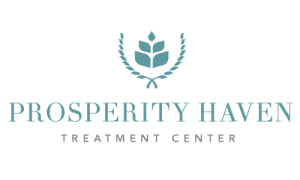No two sobriety journeys are alike.
At Prosperity Haven, we understand that. Our mission is to support clients during their rehab program in our treatment facility and guide them toward the best sober living environments in the United States that match their needs. We look out for you and support you each step of your journey to sobriety from drug or alcohol use. By propelling you towards an ideal sober living house, we help you ensure your recovery isn’t temporary but a permanent feature of your daily life.
Prosperity Haven ensures a smooth transition for each client from rehab to a sober living house. With the help of our support services, you can find the right fit among America’s top sober living facilities. We offer lasting recovery, stability, a community support system, and a new lease of life in drug-free living environments.
Let us be your trusted partner in this challenging journey to living a sober and drug-free future.

Understanding A Sober Living Home, A Pathway to Lasting Recovery
People often seek hope and a fresh start in a sober community. If a sober recovery home lacks this atmosphere, then this path could become harder than it already is. With Prosperity Haven’s case management team on the job, one is guaranteed to find a living situation that maintains a sober environment — free from drugs with access to professional aid at different stages of recovery.
What is Sober Living?
Sober living is the term used for living a sober life. It is also commonly used to describe a sober living home.

What is a Sober Living House?
A sober living facility or sober house is a supportive environment dedicated to recovery education, peer support, career development, and more. Sober living homes help individuals develop the life skills needed to rebuild their lives after substance abuse.
Freestanding sober living homes do not offer formal addiction recovery treatment services but provide support for sobriety outside the context of formal outpatient treatment. Sobriety becomes a shared experience, mainly when supported by a recovery community – people who understand each other and know firsthand what it means to battle alcohol or drug addiction.
Length of Stay in Sober Housing
Your length of stay in a sober living facility, also known as transitional housing, is influenced by a range of factors. These include your individual needs, willingness to follow your recovery plan, recovery progress, drug and alcohol addiction severity, any co-occurring mental health disorders, and compliance with house rules.
TOGETHER WE CAN MAKE SOBER LIVING
A PATHWAY TO LASTING RECOVERY
Find the sober home community that makes all the difference with Prosperity Haven
Find the community that makes all the difference with Prosperity Haven

Continuing Your Progress: The Need for Sober Living After Rehab
Transitioning from a rehabilitation recovery program to everyday life can be daunting. Sober living programs support this stepping stone. They serve as a type of halfway house, an extension of rehab’s routines and support networks, as residents learn to lead lives free from dependency on substances.
Recovery housing is more than having to keep to house rules and restrictions. It’s about fellowship, support groups, and being in a judgment-free zone where individuals can heal. Being part of a sober living community plays a huge role in sustained long-term recovery from substance use disorders.









